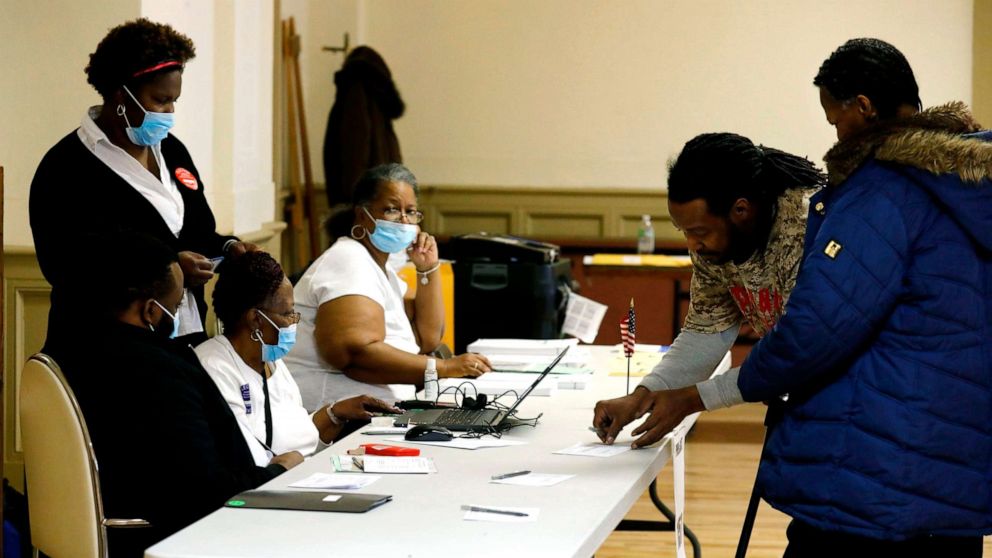Coronavirus and the 2020 campaigns: Candidates experiment with virtual campaigning with mixed results
As the 2020 election cycle enters an unprecedented phase of virtual campaigning and social distancing, candidates and party officials are wrestling with how to best adjust amid the rapid spread of the coronavirus.
There are at least 1,701 confirmed cases of COVID-19 in the U.S. and 40 coronavirus-related deaths, according to data compiled by the Center for Systems Science and Engineering at Johns Hopkins University.
Tune into ABC News Live at noon ET every weekday for the latest news, context and analysis on the novel coronavirus, with the full ABC News team where we will try to answer your questions about the virus.
Here's how the election cycle is rapidly changing.
Trump campaign officially announces virtual shift
President Trump's reelection team officially announced their shift to virtual campaigning, which will include events with top surrogates, online volunteer training and phone banking, the campaign announced in an email.
"Next week’s campaign efforts will kick off with a National Day of Action and National Week of Training," the campaign said in an email, confirming news first reported by ABC News. Sources also told ABC News that all in-person door knocking has been suspended.
While the email announces upcoming events with "top surrogates," the campaign doesn't mention of any upcoming virtual events with the actual candidate, President Trump.
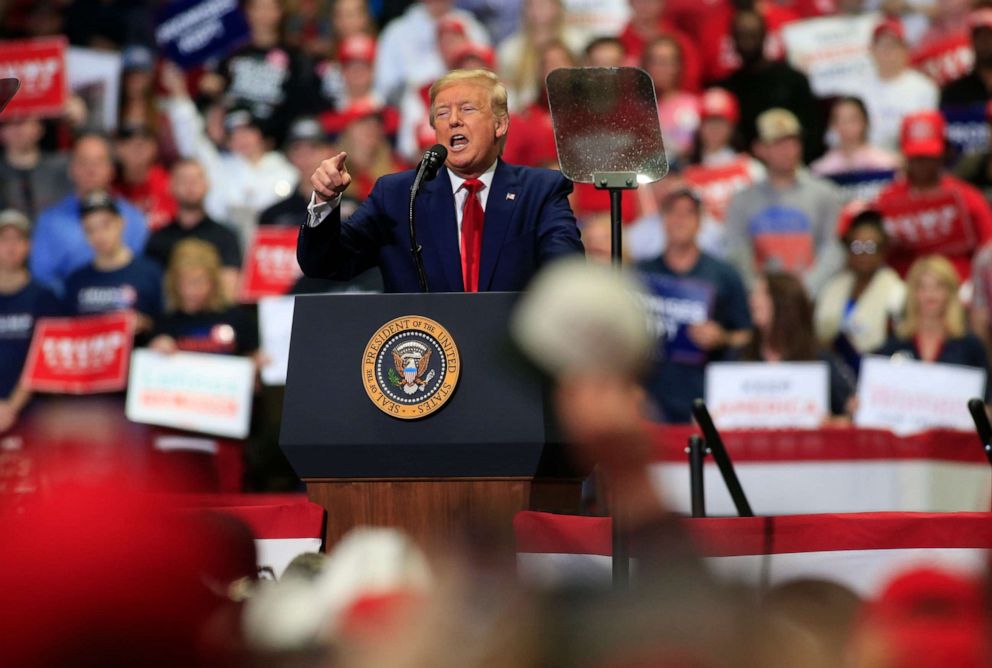
Notably, while not clear if planned, the email announcement went out shortly after the abrupt close to Joe Biden's first virtual town hall which had technical problems.
Trump campaign manager Brad Parscale boasted of the campaign's "data and technology operation" as the "most sophisticated in history" in a statement:
“The Trump campaign’s data and technology operation is the most sophisticated in history, so we’re better positioned to virtually engage voters than any other campaign,” said Brad Parscale, Trump campaign manager. “We have a huge advantage over Democrats and are well on our way toward our goal of two million trained volunteers, which means we already have a massive army we can mobilize to help re-elect the President.”
Joe Biden's first 'Virtual Town Hall" is a technical flop; campaign apologizes to participants in email
Former Vice President Joe Biden's first “virtual town hall” Friday night with voters in Illinois was a rocky affair filled with technical glitches.
The campaign originally advised the town hall would take place on Facebook, but after delaying the start of the event for two hours, and then an additional 30 minutes, the link disappeared around 7:30 pm EST, and reporters had to scramble to find an alternate link to join the event in progress.
Even Biden seemed annoyed with the technical difficulties--apologizing multiple times to the few questioners we were able to hear because of the issues.
“I'm sorry this has been such a disjointed effort here because of the connections,” Biden said after the aide running the town hall announced it would be ending around 7:45pm EST.
An email to supporters originally listed that the event would be held from 7pm to 9pm EST.
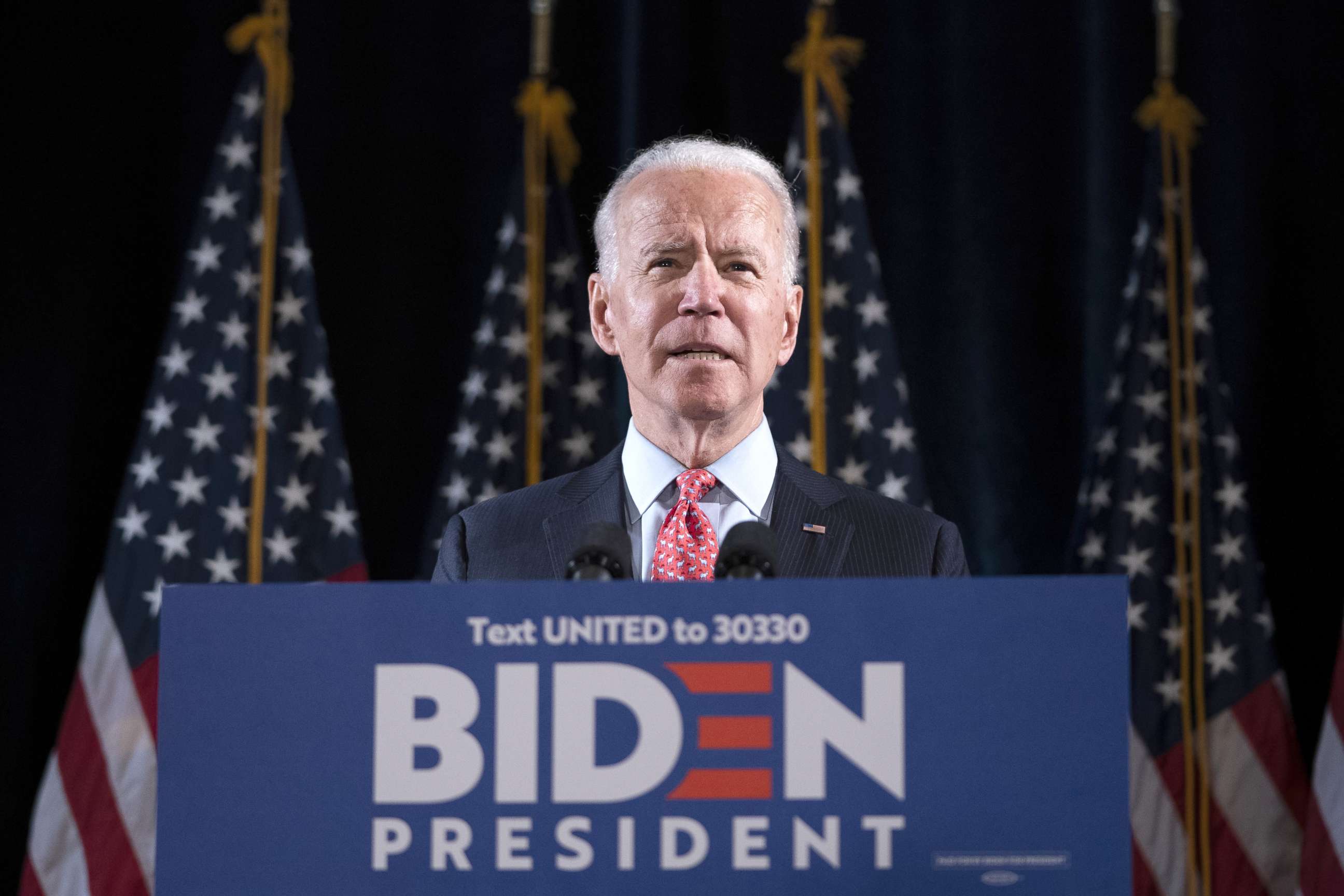
Biden, who stood before an American flag and Illinois flag, appeared on screen holding a phone that he spoke into throughout the video, and at one point, turned to his left and wandered away from the center of the screen, leading the campaign to put up a slate of his logo as he continued to speak.
During the portion press was able to watch the event, Biden did field one question on how his healthcare plan would deal with the current health crisis, which he answered by pitching a public option, which he says he can actually get through Congress.
Following the event, the campaign sent an email apologizing to participants for how badly things went:
“Thank you for registering to cover Vice President Biden's Illinois virtual town hall today. We apologize for the technical difficulties we ran into and will be posting a recording of the full town hall as soon as possible and will be sharing Vice President Biden's introductory remarks as prepared for delivery momentarily," the email read. “Thank you for your patience as we continue developing our virtual town halls and ensure voters have the opportunity to connect with Vice President Biden as he lays out his vision for America,” the email said.
Donor recently at Mar-a-Lago tests positive for coronavirus, according to Trump Victory email
Trump Victory on Friday informed donors via email who attended a fundraiser at Mar-a-Lago on Sunday that a donor who also attended the event has tested positive for the coronavirus, according to an email obtained by ABC News.
"We unfortunately write today to notify you that an attendee at the Trump Victory-sponsored event you attended at Mar-a-Largo on Sunday, March 8," the joint committee between the Trump campaign and Republican National Committee wrote in an email sent today.
A senior campaign official tells ABC News the donor did not interact with the president. The RNC did not return a request for comment.
Read more here.
Wyoming Democrats cancel in-person caucus method of voting, county convention amid COVID-19 concerns
The Wyoming Democratic Party has decided to cancel its county conventions and the in-person caucus voting method of its contest this cycle amid the COVID-19 pandemic.
As part of its delegate selection plan, the party had already implemented a vote-by-mail option and a ballot drop off option in addition to the in-person caucus, and those will both continue as planned for now.
"We're very glad that we made that change this year, so voters can still participate," Nina Hebert, communications director for the party, told ABC News.
Voters had to register to request a ballot to vote-by-mail by March 10. That date has not changed. All ballots will be sent out today to voters who did that (and a first round of ballots have already gone out). The returned ballots must be postmarked by March 20.
If voters didn't do that, on March 28 or April 4, they can go to a ballot drop off location and pick up/fill out a ballot on site. Additionally, Wyoming residents must be registered Democrats to participate and they must be registered by March 20.
The ballots are rank-choice, to reflect the caucus-style. Candidates can rank up to five candidates, including "uncommitted," and there is no minimum.
The state convention is still planned for June 6. With the cancellation of the county conventions, the party is working on finalizing a plan where the county parties can hold their county conventions electronically to be able to still develop their party platforms and elect delegates to the state convention.
Louisiana moving primary to June 20 violates current DNC rules, party says
Louisiana Secretary of State Kyle Ardoin announced Friday that the primary that was set to take place on April 4 has been delayed to June 20 -- a move that the Democratic National Committee said runs afoul of the committee's "rule on timing" since all contests must be held before June 9th.
Ardoin said he requested postponing the primary “out of an abundance of caution for Louisiana’s voters, voting officials, and the voting public as a whole.”
A key stakeholder in the decision was to protect “the election day polling commissioners. More than half of the commissioners are over the age of 65, a population that is particularly vulnerable to the disease.
“Safe and secure elections also mean safety to the people of Louisiana,” Ardoin said.
He said that they tried to find ways to hold the election “but kept running into barrier after barrier."
Ardoin said that he is not sure if any other state is delaying their elections and that he “has not gotten any calls from other election officials.”
Louisiana Gov. John Bel Edwards said he would sign a separate executive order approving the request.
"The limits on gatherings of 250 people or more statewide is based on federal CDC guidance given the community spread which we are currently experiencing. These steps are necessary to protect the health and safety of the people of Louisiana from the risk of COVID-19," he said in a statement.
At least 45 states have laws on the books that address Election Day emergencies, according to the National Conference of Legislatures. But the laws vary widely between states.
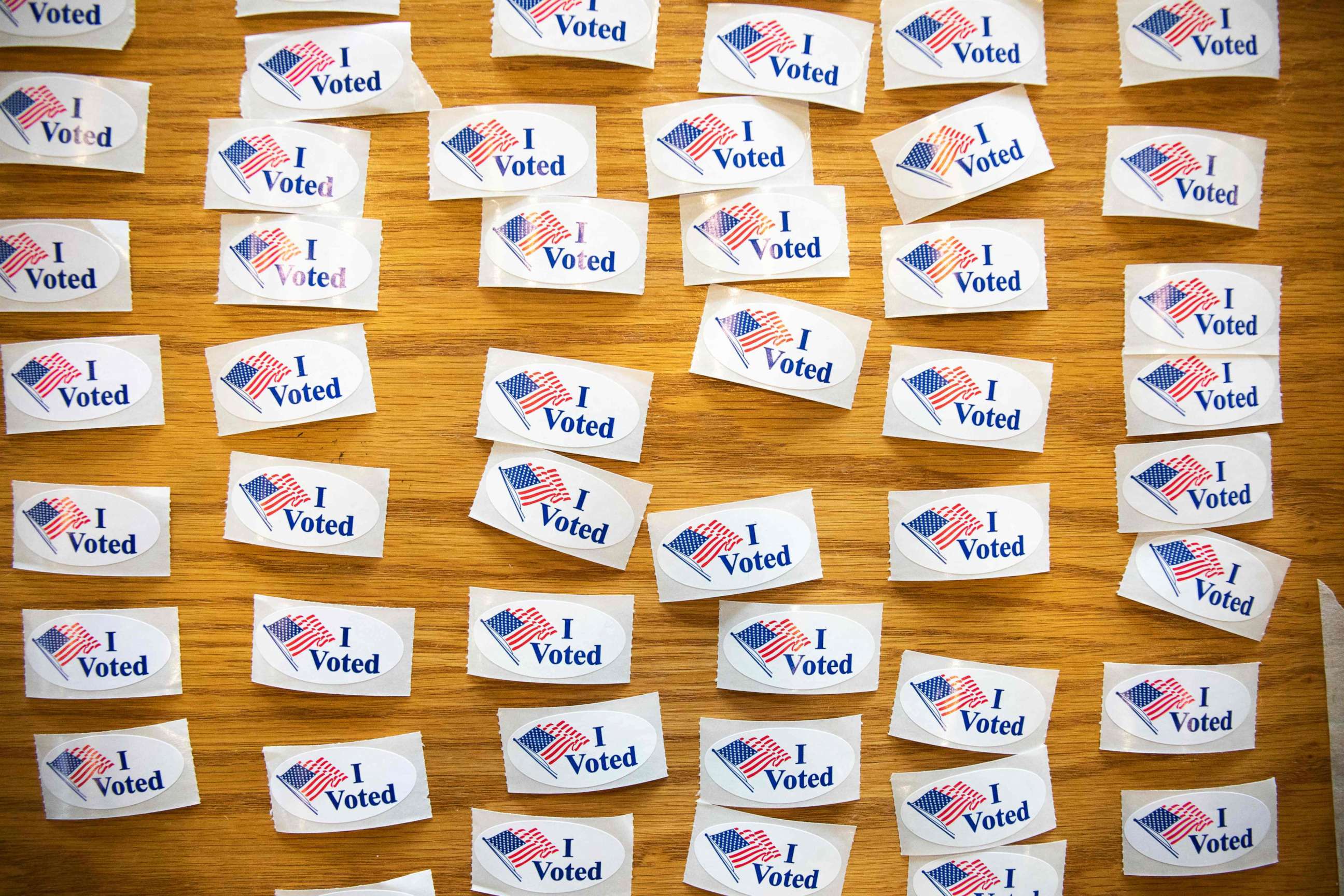
Only Florida, Maryland, South Carolina, Virginia and Louisiana explicitly give governors the power to move election dates in an emergency. Other governors could likely adjust elections, though they would probably have to work with relevant agencies and state legislatures to do so, rather than acting unilaterally.
In response to the Louisiana secretary of state's request, the DNC notes that changing the primary to June 20 violates the committee's "rule on timing" since all contests must be held before June 9th. Any violation of the rules could result in a delegate penalty.
All contests must happen by June 9 and delegates must be elected by June 20, as stated in the rules passed by the full DNC. The Rules and Bylaws Committee within the DNC will now have to review the request.
"We will continue to work with every state party as they adjust their delegate selection plans around coronavirus. This change would violate our rule on timing which provides that all states hold their contests by June 9th. Any violation of our rules could result in a penalty that would include a state losing at least half of its delegates," a DNC spokesperson told ABC News. "This change will be reviewed by the Rules and Bylaws Committee."
Former Vice President Joe Biden’s campaign has already responded to the postponement. Biden’s Deputy Campaign manager and Communication Director Kate Bedingfield released a statement encouraging those who are still well to go out and vote in primaries Tuesday, and suggesting those who are at risk or have been expose explore other ways to vote.
“Voting is at the very heart of who we are as a democracy. As election officials working with public health officials are demonstrating throughout the country, our elections can be conducted safely in consultation with public health officials. If voters are feeling healthy, not exhibiting symptoms, and don’t believe they've been exposed to COVID-19, please vote on Tuesday. If voters are members of an at-risk population, exhibiting symptoms, or have been exposed to a diagnosed case of COVID-19, we encourage them to explore absentee ballots and vote by mail options,” Bedingfield’s statement read.
Meanwhile, officials in Arizona, Florida, Illinois and Ohio released a joint statement saying they "are confident that voters in our states can safely and securely cast their ballots in this election, and that otherwise healthy poll workers can and should carry out their patriotic duties on Tuesday."
"As each of our four states prepare for voters to head to the polls on Tuesday, March 17, 2020, we are working closely with our state health officials to ensure that our poll workers and voters can be confident that voting is safe," the statement read.
Sanders says postponing primaries is a 'tough question,' campaign is 'thinking through' work-arounds
In yet another press conference from his hometown of Burlington, Vermont on Friday--his third in three days-- Sen. Bernie Sanders again outlined proposals to address the ongoing coronavirus pandemic, and pitched his signature Medicare for All plan, saying that the outbreak could be the turning point at which the public begins to question the fundamentals of the American health care system.
Working from a teleprompter -- something rare on the campaign trail for Sanders -- the senator largely repeated his remarks from Thursday, calling for scientists to take the lead on the response to the emergency, arguing that the costs of testing and treatment need to be made affordable, and pushing for the expansion of safety net programs for those economically impacted.
As to whether upcoming primaries should be delayed amid the pandemic, Sanders acknowledged it was a tough choice.
"Rescheduling elections is not something we do lightly or should do lightly. On the other hand, at this particular moment, it is absolutely appropriate that public officials, governors, etc., listen to public health officials," he said.
He also stressed President Trump should be tested for coronavirus, given reports he's been in close proximity to people affected.
"I would. You know,I was asked early on, to the best of my knowledge, I have not been in proximity to somebody who had the virus. If I knew that I was, I would get tested, and I think that holds true for the president," he said.
States scramble to move polling places, stock up on hand sanitizer and recruit poll workers
Local election officials are stocking up on rubber gloves and hand sanitizer, moving polling places away from nursing homes and encouraging early and mail-in voting to combat the growing coronavirus crisis in the middle of an election year.
Logistically, election officials have scrambled to relocate dozens polling places out of senior homes and away from vulnerable populations, taking steps to notify voters where they can and reduce health risks for elderly voters where they haven’t been able to move operations.
Officials are encouraging more early voting and voting-by-mail to help people avoid long lines at their polling places on Tuesday. Arizona, Florida, Illinois and Ohio are among the 39 states with early voting laws, according to the National Conference of State Legislature.
State and local election officials are concerned about having enough workers at polling locations around the country next week, worried that volunteers, who tend to be older, will drop out with concerns about the coronavirus.
Officials across the states are circulating polling location-specific guidance from the Centers for Disease Control, encouraging volunteers and workers to stock up on cleaning supplies and offering to reimburse them for any extra equipment they need to purchase.
Read more about those efforts here.
Two-thirds of Americans concerned about contracting coronavirus, as country grapples with growing crisis: POLL
Two-thirds of Americans are concerned that they or someone they know will be infected with the novel coronavirus, but in a country with a growing partisan divide, political tribalism is having a large impact when it comes to anxiety over the disease, according to a new ABC News/Ipsos poll released Friday.
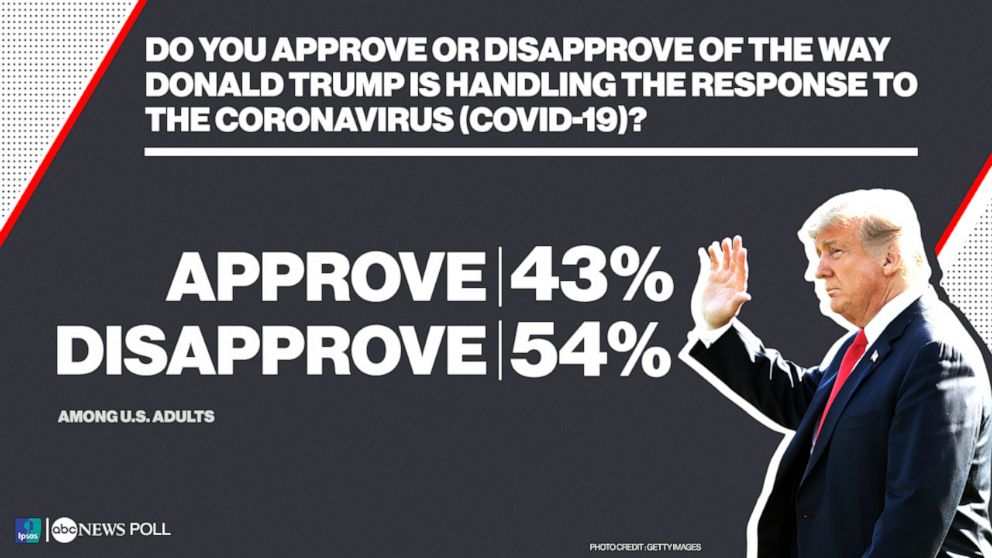
Although unease over the coronavirus is high, it also strongly breaks along partisan lines. Among Democrats, 83% are concerned about getting coronavirus, including 47% who are very concerned, and among Republicans, 56% are concerned, including only 15% who are very concerned. Only 17% of Democrats are not concerned while a larger 44% of Republicans are not concerned.
Read more of the poll's findings here.
Trump campaign calls Biden a "rotting corpse of a candidate" on Twitter
A growing pandemic hasn't stopped the Trump campaign from escalating their attacks on Democratic frontrunner Joe Biden—now calling the former vice president a "rotting corpse of a candidate" on Twitter.
In a tweet on Friday, the official Trump campaign account appeared to reiterate an opinion piece from the The Washington Times, blasting Biden as what they called a "rotting corpse of a candidate."
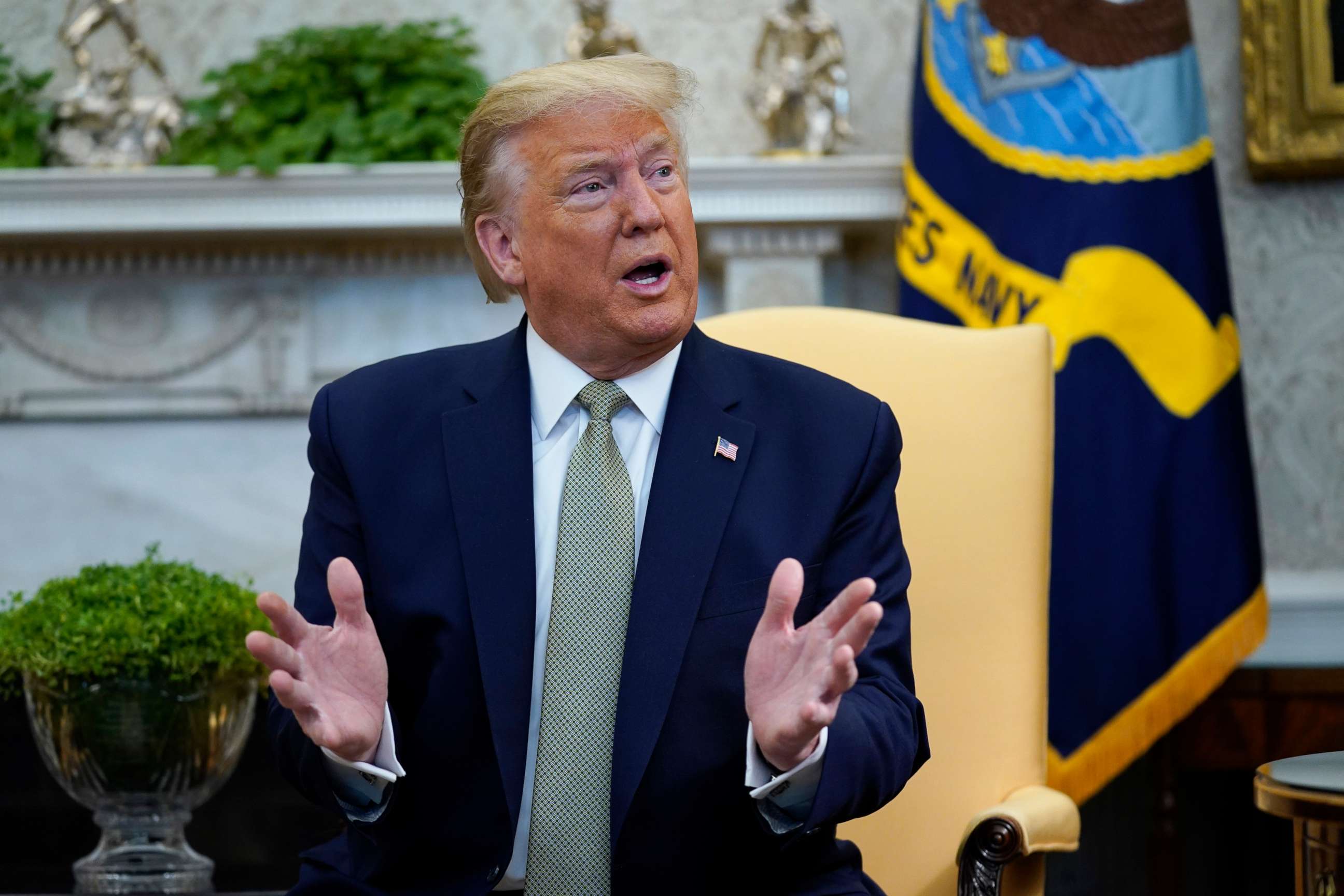
The tweet follows Biden's continued criticism of the president's handling of the coronavirus outbreak. The former vice president delivered a speech designed to hammer Trump's response to the outbreak on Thursday, arguing that the virus had "laid bare the severe shortcomings of the current administration.”
Hours later, the president himself fired back at Biden on Twitter, and tried to use the Obama/Biden administration's handling of the Swine Flu in 2009 to argue his own response to the coronavirus has been "one of the best."
ABC News' Luke Barr, Meg Cunningham, Chris Donato, Kendall Karson, Adam Kelsey, Molly Nagle, Quinn Scanlan, Ben Siegel, Will Steakin and Johnny Verhovek contributed to this report.
